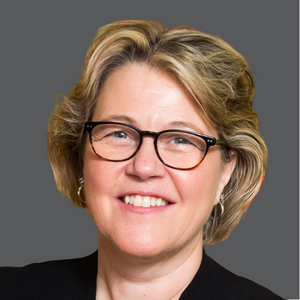Coronavirus: Statement from PHI President Jodi M. Sturgeon
 With the emergence and rapid spread of COVID-19, our world has changed dramatically over the last few months—and all of us are experiencing the effects.
With the emergence and rapid spread of COVID-19, our world has changed dramatically over the last few months—and all of us are experiencing the effects.
The latest estimates indicate that there are more than 10,000 confirmed cases of COVID-19 within the U.S., with many more expected as testing improves and the virus affects more individuals. Older adults and people with serious medical conditions are especially at risk, and measures such as “social distancing”—an important aspect of what’s needed to “flatten the curve” on the epidemic—will raise additional challenges related to mental health, isolation, and loneliness.
During this unprecedented crisis, we’re especially grateful to the broad range of workers in health and long-term care who keep us safe and healthy, often at their own risk. Nationwide, 4.5 million direct care workers serve as the paid frontline of support for older people and people with disabilities. Yet as PHI described in a recent article, direct care workers are among the most vulnerable – both to infection, given the in-person nature of their work, and to the challenges faced by low-wage workers across sectors. For example, many direct care workers lack paid leave, health benefits, and proper training and supports to take care of their health, remain financially secure, and support their clients. More than ever, quality care relies on quality jobs.
It remains startling then how invisible direct care workers remain as a priority in the national response to the coronavirus epidemic. While we commend yesterday’s introduction of the Coronavirus Relief for Seniors and People with Disabilities Act, which includes dedicated funding for states to improve direct care jobs, many emergency policy measures for the coronavirus are not explicitly supporting the direct care workforce (and other low-wage workers) and their employers. (For example, the Families First Coronavirus Response Act, which was signed into law Wednesday night, is a much-needed boost to addressing the coronavirus epidemic, but it leaves out an estimated 6.5 million workers in its paid leave measures.) More federal and state action will be needed. Similarly, my conversations with providers around the country emphasize how direct care workers aren’t being deemed “essential personnel” in the immediate response to the pandemic and are being shut out of critical funding support and targeted interventions. All these issues need to be addressed—and PHI is committed to shining a light on solutions.
To help illuminate the coronavirus-related challenges facing the direct care workforce, PHI has launched a series of articles that will explore the unique considerations for workers, providers, and policymakers during this critical moment. Over the next few weeks, we’ll explore the political dimensions of this crisis and how government leaders at various levels should invest in this workforce. We’ll share our learning about the challenges being faced by direct care workers and their employers, keeping an eye on both immediate needs and long-term structural solutions. Our advocacy staff is working in partnership at the federal and state level to monitor and inform relevant proposals, and we welcome inquiries about how our services and workforce innovations can support you in this time of crisis. Finally, at PHI, we’re implementing the best options we have as an organization to keep staff safe, help minimize the spread of the virus, and continue to work diligently to respond to these issues.
We also want to hear from you. We’ve issued a survey to understand the barriers you’re facing—as providers, workers, and the general public—to effectively addressing the coronavirus. Please take a few minutes to complete our survey.
Moments like this draw attention to the flaws and widespread inequities in our national health and long-term care systems. But they also bring people together to reflect and act decisively. We’re honored to be a part of this sector as we coalesce to support workers, employers, and consumers across the country in responding to the coronavirus epidemic.
Jodi M. Sturgeon, President, PHI






